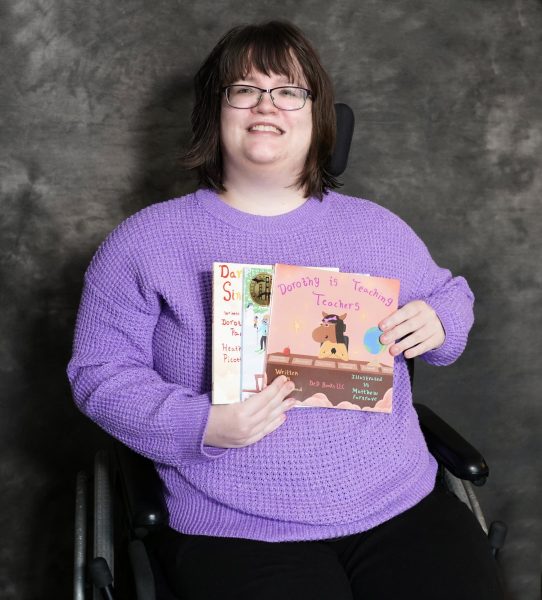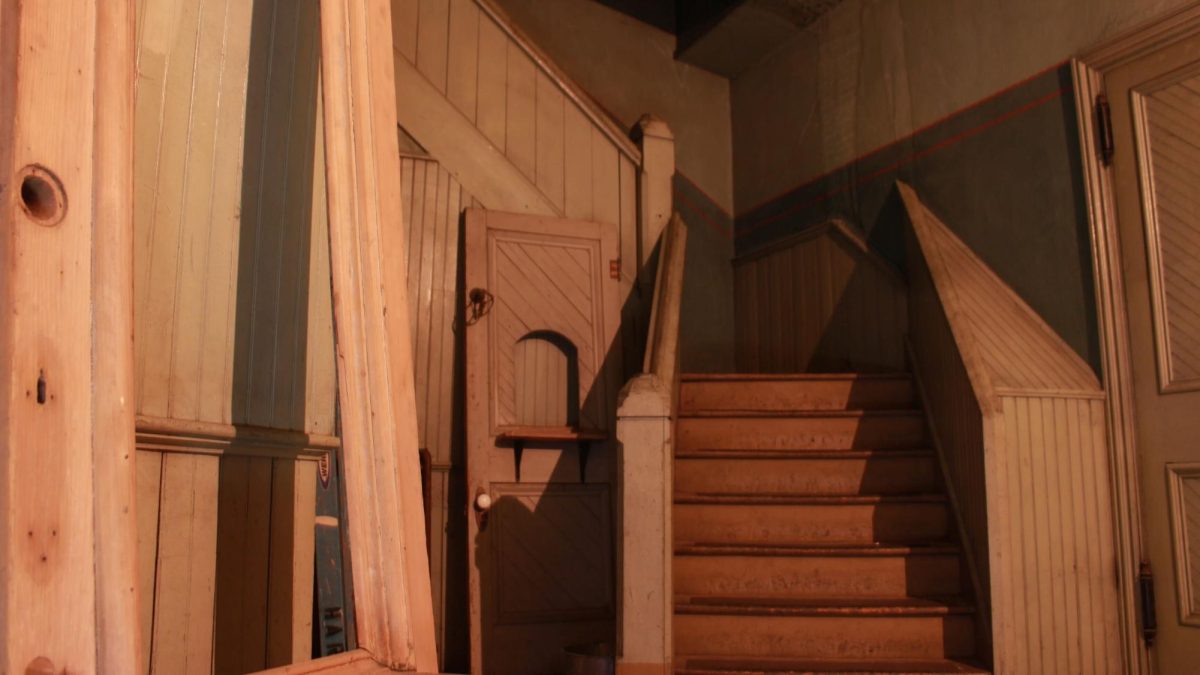
Despite being underestimated her whole life, Dorothy Paad is still dancing her dance and singing her song. So much so that it’s the name of her first book.
Paad, who’s 34 years old and from Marquette, lives with cerebral palsy after suffering two strokes in utero, being born two months premature and spending her first two months in the NICU. She’s endured countless procedures and experiences seizures.
Paad has made the journey from the NICU to now being an award-winning author. She has published three children’s books about her life and journey with cerebral palsy, including her first book, “Dance Your Dance, Sing Your Song.”
She said she never had envisioned herself as an author, but she has a story to tell. Growing up facing bullying and doors closing in her face, now she wants to inspire others with her journey.
She travels across the state to share her story; including a trip to Michigan State University’s campus last week to speak with a group of journalism students.
Paad has broken barriers by defying all expectations of her she faced while growing up. She shared that her whole life she’s been surrounded by people who told her she could never achieve her dreams. She’s achieved things in life like attending Northern Michigan University, taking dance lessons and becoming an author.
But she made one thing clear when speaking to students last Wednesday – none of it would be possible without her direct care worker (DCW), Tracy.
“My caregiver is one of the reasons why I look forward to getting out of bed in the morning,” Paad shared with students. “I would merely exist instead of live if there were not a direct care worker in my life.”
Her campus visit comes just after MSU’s College of Osteopathic Medicine received a $25 million grant from the Michigan Department of Health and Human Services to address the state’s shortage of DCWs.
DCWs offer ongoing assistance to people with disabilities and elderly individuals, aiding with hands-on care and essential tasks to help them preserve their independence to the fullest extent possible.
The new grant will establish a DCW training and credentialing program, along with a public awareness campaign.
After seeing the difference DCWs have made in his daughter’s life, Paad’s father, Eric, founded the nonprofit organization, the Caregiver Incentive Project. Through this organization, he has created a training course for DCWs and increased recruitment for the career, while helping individuals in need connect with a DCW. He said he created this organization in hopes of fixing a broken system.
Eric Paad explained the risk their family is taking by being outspoken advocates of DCWs. Saying that an agency has threatened to take his daughter’s care away if they become too vocal.
“We all came into this world to live a life, and Dorothy is no exception to that,” he said.
Dorothy Paad has advocated to secure a raise for her DCW, but the agency that manages her care declined. After 20 years in the profession, her DCW gets paid $16.50 an hour.
“I can’t choose the fact that I have cerebral palsy, that I have a lifelong disability, that I will need care until I leave this planet,” she said. “But I can choose to have a healthy attitude about it.”
Dorothy Paad’s dream job had long been to be a teacher, but growing up, she was told she would never achieve this dream because she couldn’t write on a blackboard. Now she’s educating students across the state about cerebral palsy and the importance of DCWs.
“Now I write on a smart board, so I got the last laugh,” she said.






















